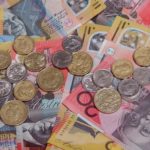Yesterday’s trade (in GMT terms) saw GBP/USD within the range of 1.3060-1.3141. The pair closed at 1.3105, edging down 0.25% compared to Fridays close. It has been the 178th drop in the past 326 trading days and also a third consecutive one. The daily low has been a level unseen since August 22nd, when a low of 1.3034 was registered. The major pair has increased its drop to 0.97% so far during the current month, after losing 0.59% of its value in July.
At 7:06 GMT today GBP/USD was edging down 0.28% on the day to trade at 1.3068. The pair touched a daily high at 1.3121 during the early phase of the Asian trading session, overshooting the daily R2 level, and a daily low at 1.3059 during late Asian trade.
On Tuesday GBP/USD trading may be influenced by the following macroeconomic reports as listed below.
Fundamentals
United Kingdom
Consumer Lending, Mortgage Approvals
Lending to consumers in the United Kingdom probably expanded by GBP 1.700 billion in July, according to the median forecast by experts, following an increase by GBP 1.837 billion in June. The latter has been the highest monthly rate since March, when consumer loans increased by the revised down GBP 1.865 billion. Credit card lending rose by GBP 0.6 billion in June, or exceeding the average increase in the preceding six months. Other loans expanded by GBP 1.3 billion in June, also exceeding the average rate of increase in the prior six months.
This indicator represents borrowing by the UK personal sector (individuals only) to fund current expenditures on goods and services, which are a driving force behind economic growth.
Within a sluggish economy, in case lending to individuals expanded at a lesser-than-projected pace, this would usually have a moderate bearish effect on the local currency, and vice versa. Bank of England (BoE) is to release the official numbers at 8:30 GMT.
At the same time, the number of mortgage approvals in the United Kingdom probably decreased to 61 900 in July, according to experts’ expectations, from 64 770 in June. If so, this would be the lowest figure since February 2015, when a revised down number of 61 520 mortgages approved was reported (61 760 previously). Mortgage approvals are considered as a leading indicator, reflecting the health of the country’s housing market. In case the number of mortgages approved fell more than anticipated, this would imply potentially lower demand in the nation’s housing sector and, respectively, a somewhat negative impulse for overall economy. Therefore, it may have a limited-to-moderate bearish effect on the Sterling. Bank of England will release the official data at 8:30 GMT.
United States
S&P Case-Shiller Home Price Index
At 13:00 GMT Standard & Poor’s/Case-Schiller will report on the performance of their House Price Index, which measures the change in values of single-family homes in 20 metropolitan areas across the United States. The report serves as a gauge of the US housing market’s health. According to the median estimate by experts, home prices in the 20 areas probably rose 5.2% in June compared to June 2015, while matching the rate in May. It has been the lowest annual increase since September 2015. In May, home values in Portland recorded the highest annual increase (up 12.5%), followed by Seattle (up 10.7%) and Denver (up 9.5%). Within a recovering economy, a sharper-than-projected gain in prices will usually have a limited-to-moderate bullish effect on the local currency.
Consumer Confidence Index by the CB
Confidence among consumers in the United States probably lowered in August, with the corresponding index coming in at a reading of 97.0, according to market expectations. In July the gauge was reported at 97.3, while outstripping the median estimate of 95.9.
This indicator measures the level of individuals’ confidence in the US economic development. It is considered as a leading indicator, as it gives an early insight into consumer spending, which accounts for a major part of the nation’s GDP.
In case the index slowed down more than anticipated, this would have a strong bearish effect on the US dollar, as lower confidence suggests a lesser willingness to spend and, respectively, a slower economic growth. The Conference Board research group is to publish the official index reading at 14:00 GMT.
Bond Yield Spread
The yield on UK 2-year government bonds went as high as 0.168% on August 29th, after which it closed at 0.167% to lose 0.003 percentage point compared to August 26th.
Meanwhile, the yield on US 2-year government bonds climbed as high as 0.853% on August 29th, or the highest level since June 3rd (0.899%), after which it fell to 0.817% at the close to lose 2.8 basis points (0.028 percentage point) compared to August 26th.
The spread between 2-year US and 2-year UK bond yields, which reflects the flow of funds in a short term, narrowed to 0.650% on August 29th from 0.675% on August 26th. The August 29th yield spread has been the lowest one since August 25th, when the difference was 0.634%.
Daily, Weekly and Monthly Pivot Levels
By employing the Camarilla calculation method, the daily levels of importance for GBP/USD are presented as follows:
R1 – 1.3112
R2 – 1.3120
R3 (Range Resistance – Sell) – 1.3127
R4 (Long Breakout) – 1.3150
R5 (Breakout Target 1) – 1.3176
R6 (Breakout Target 2) – 1.3186
S1 – 1.3098
S2 – 1.3090
S3 (Range Support – Buy) – 1.3083
S4 (Short Breakout) – 1.3060
S5 (Breakout Target 1) – 1.3034
S6 (Breakout Target 2) – 1.3024
By using the traditional method of calculation, the weekly levels of importance for GBP/USD are presented as follows:
Central Pivot Point – 1.3150
R1 – 1.3267
R2 – 1.3395
R3 – 1.3512
R4 – 1.3628
S1 – 1.3022
S2 – 1.2905
S3 – 1.2777
S4 – 1.2648
In monthly terms, for GBP/USD we have the following pivots:
Central Pivot Point – 1.3171
R1 – 1.3546
R2 – 1.3858
R3 – 1.4233
R4 – 1.4608
S1 – 1.2859
S2 – 1.2484
S3 – 1.2172
S4 – 1.1860





